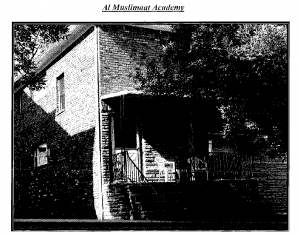The Tie between Jeffrey Sterling and CIA-on-the-Hudson
My latest post on the Jeffrey Sterling trial notes that the same guy who called Sterling’s performance “extremely sub-par” is also the guy who set up the NYPD’s program profiling Muslims.
On Friday, former high ranking CIA officer David Cohen — who headed up the New York office while Sterling was there — described how he removed Sterling from the Merlin case because he didn’t believe Sterling was performing well at his job (an opinion neither his deputy, Charles Seidel, nor Bob S shared, at least according to their testimony). “His performance was extremely sub-par,” Cohen testified. Cohen also seemed to disdain what might be called political correctness, which if true may have exacerbated Sterling’s increasing sense of being discriminated against for being African American.
That would be consistent with the action for which Cohen has received more press in recent years: setting up the New York Police Department’s intelligence program that profiles the area’s Muslim community. In the wake of 9/11, Cohen moved from the CIA to the NYPD. In 2002, he got a federal court to relax the Handschu guidelines, which had been set up in 1985 in response to NYPD’s targeting of people for their political speech. Handschu required specific evidence before using informants to investigate a group. But, as an article from the Pulitzer Prize winning AP series described it, “Cohen told a federal judge that those guidelines made it ‘virtually impossible’ to detect terrorist plots.” After getting the rules relaxed, Cohen created teams of informants that infiltrated mosques and had officers catalog Muslim-owned restaurants, shops, and even schools. “Cohen said he wanted the squad to ‘rake the coals, looking for hot spots,’” the AP reported in 2011.
At almost precisely the same time as jury selection for Sterling’s case started, theThird Circuit Court of Appeals heard a challenge from those targeted under the program, who claim they had been discriminated against on the basis of their religion.
While the agencies involved are different, it seems notable that the primary person to find fault with Sterling’s performance at the CIA — which Sterling claimed arose from problems with his race — is the same guy who started a program targeting Muslims across the New York City area. But that detail won’t be presented to jurors at all during the trial.
Click through to see how the Russian involved in the operation invoked Valerie Plame to describe his concern about his name leaking, just weeks before it started to become clear that Vice President Cheney probably ordered that leak.

